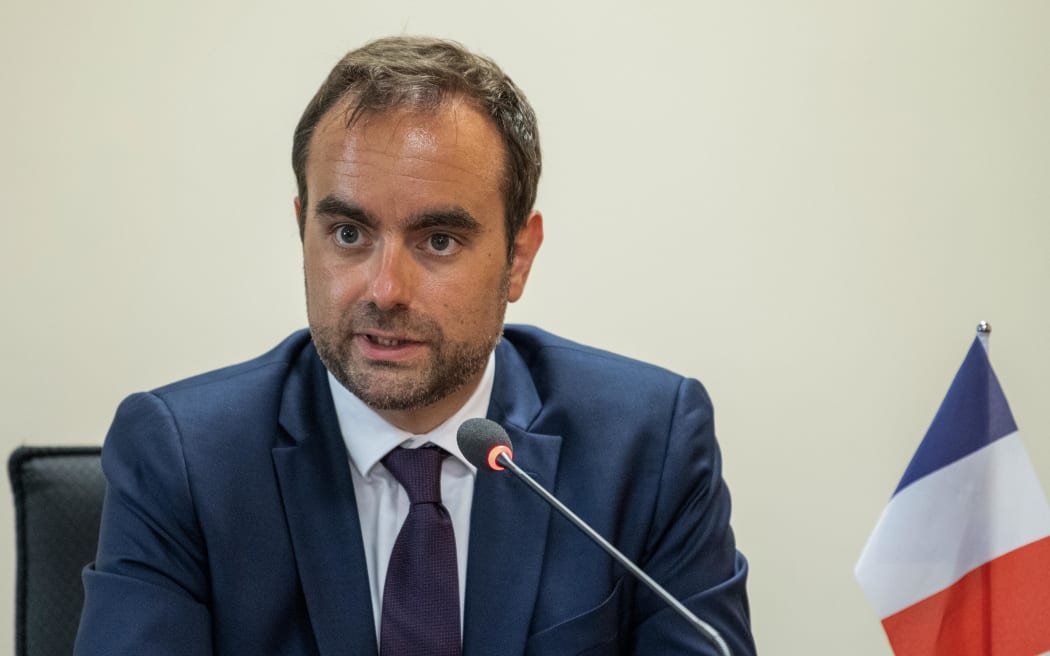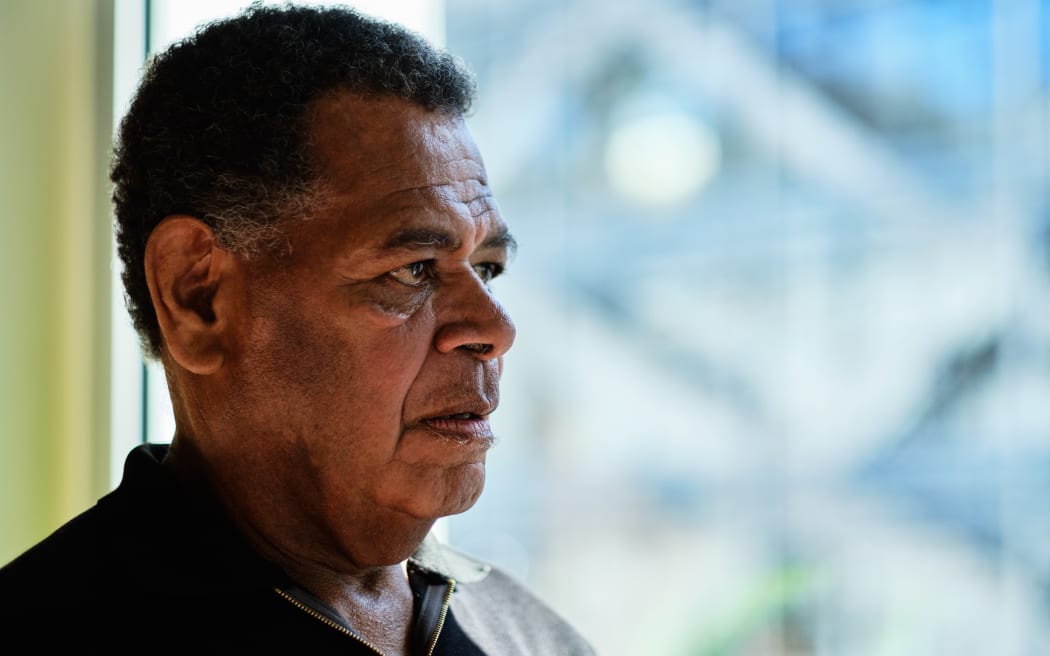French Senate explores new statute for New Caledonia
Tuesday 14 June 2022 | Written by RNZ | Published in New Caledonia, Regional

The Kanak and French flags flying before the third referendum on independence in 2021 Photo: CLOTILDE RICHALET
Work has begun in Paris towards a new statute for New Caledonia after three referendums on independence from France failed to give the Kanak people its expected emancipation.
On the UN decolonisation list since 1986, New Caledonia's quest for independence was harnessed first by the 1988 Matignon Accords and then the 1998 Noumea Accord, giving the territory three decades of peace but leaving it in limbo.
The anti-independence camp has taken the three no votes in the referendum as the democratic expression of the electorate to remain part of France.
The pro-independence camp views the rejection of full sovereignty at the ballot box as the Noumea Accord's failure to entice the established French settlers to join it to form a new nation.
The challenge is for both New Caledonia's leaders and the French government to reconcile these two positions in a new arrangement.
By inviting academics to outline the parameters of a possible successor accord, the French Senate law commission has taken a first step towards a new statute.
This will be followed up next week when a Senate delegation travels to New Caledonia for a week-long information tour, seeking views on what local leaders expect.
A key question is how entrenched the provisions of the Noumea Accord are as they define the identity of New Caledonia's people, its institutions and its powers.
The Accord states that the transfer of power is irreversible, which is enshrined in the French constitution.
But a debate has begun about whether the terms of the Noumea Accord are provisional until an enduring solution is found or if they are meant to be transitional until the emancipation of the Kanak people has been achieved.
In the immediate way forward after last December's referendum, the French overseas minister Sebastien Lecornu set June 2023 as the target date for a new statute, which would then be put to a vote in New Caledonia.

With just over 96 percent voting against independence, the president of the Southern Province Sonia Backes said the question of whether New Caledonia belonged to France no longer arose.
Backes said the sad dreams of independence at the cost of ruin, exclusion and misery had been shattered on the loyalists' pioneer soul, resilience and love for New Caledonia.
The referendum, however, was boycotted by the pro-independence side after it had unsuccessfully asked Paris to postpone the vote because of the impact of the Covid-19 pandemic - mainly on the indigenous Kanak population.
The pro-independence parties said they would not recognise the result, describing it as illegitimate and one not reflecting the will of the people to be decolonised.
Leading pro-independence politician Daniel Goa said the pro-independence camp wouldn't join any discussions about re-integrating New Caledonia into France.
He said, "the Caledonian Union had nothing to negotiate except to listen and discuss the process of emancipation that will irreversibly lead to sovereignty".

According to Professor Geraldine Giraudeau of the University of Perpignan, the Kanaks' right to self-determination had not disappeared with the referendum outcome.
Giraudeau told the Senate law commission that this was an essential and inalienable international right, which was also recognised by France.
She cited various decolonisation arrangements that could be considered such as those found in Pacific Island countries and in the Caribbean involving New Zealand, the United States and the Netherlands.
Senator Jean-Pierre Sueur said it was not in the French "legal culture" to consider a set-up with a state associated with France, adding that would pre-suppose a certain independence of the partner country.
France, however, recognises the Kanak people as the only other than the French within the confines of the republic - others are defined as populations.
New Caledonia is also the only French-controlled territory where the census is allowed to classify ethnicity - a practice banned in the rest of France.
The Noumea Accord created a New Caledonian citizenship, bestowed to indigenous Kanaks and French citizens who by 1998 had lived in New Caledonia for at least ten years.
This produced restricted voter rolls for the referendums and the provincial elections.
With the end of the Noumea Accord, the anti-independence camp wants the restrictions to be scrapped and lobbying is underway to give full voting rights to the more than 40,000 French residents, who are on the general roll used for France-wide elections.
The push by the anti-independence side is for this to change to be made before the planned 2023 vote for a new statute and before the 2024 election.
From the Kanaks' point of view, any change to the roll is unacceptable as it would wipe the protections they had secured against a marginalisation through immigration from France.

Professor Mathias Chauchat of the University of New Caledonia urged the law commission not to touch the rolls, warning that "the opening of the electoral roll is not compatible with civic peace".
The challenges are momentous.
Lecornu said the referendum date for a new statute would be in June 2023, but the law commission president François-Noël Buffet said this was only a declaration by a minister which has no legal basis and doesn't commit anyone.
The Noumea Accord says in case of three no votes, the political partners will meet to examine the situation that has thus arisen.
It also says should there be no new political arrangement, the set-up decided in 1998 would remain in force.
It adds that there is no going back because the 'irreversibility' is constitutionally guaranteed.














































